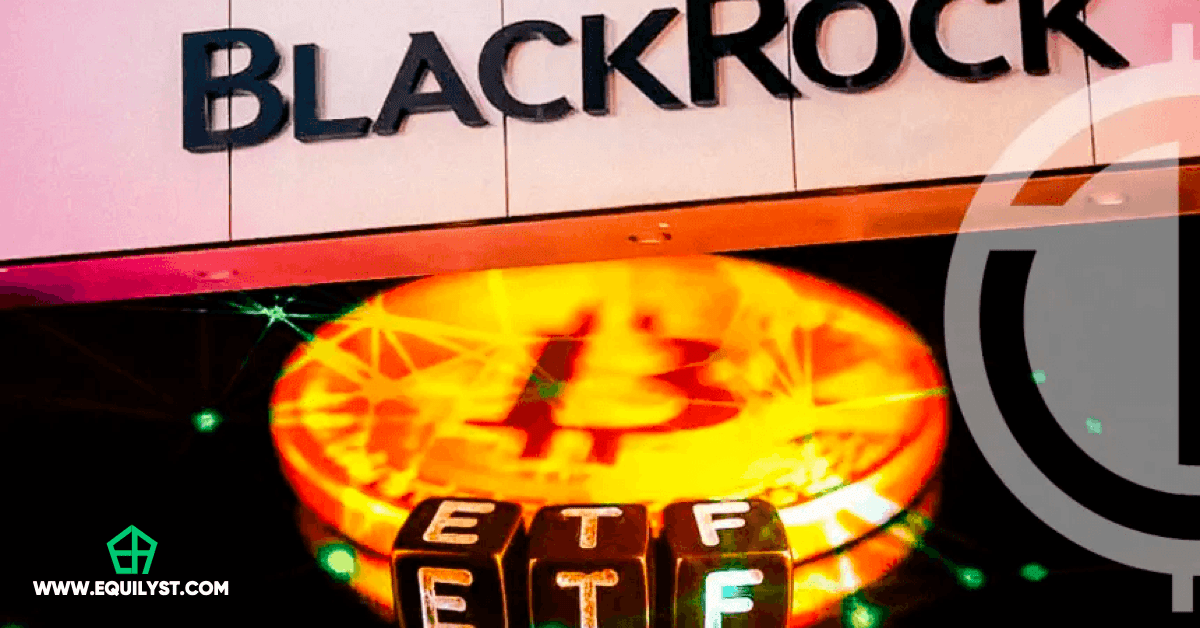Prominent figures in the finance industry are placing fresh bets on cryptocurrencies, injecting competition and momentum into a burgeoning sector that faces mounting pressure from US regulators.
BlackRock (BLK), the world’s largest money manager, intends to initiate a new exchange-traded fund centered around bitcoin as an underlying asset.
Citadel Securities, one of the world’s major hedge funds, is supporting a new cryptocurrency exchange in collaboration with Fidelity Investments and Charles Schwab (SCHW), two other significant money managers.
Deutsche Bank’s Crypto Custody Business
Deutsche Bank, one of the largest lenders globally, aims to operate a crypto custody business that would hold digital assets on behalf of its clients.
These endorsements from reputable institutions with proven Wall Street backgrounds are propelling the value of cryptocurrencies upward, particularly bitcoin (BTC-USD).
Bitcoin, the most prominent cryptocurrency, surged to its highest price in a year on Friday, reaching $31,389 after surpassing the $30,000 milestone for the first time since April.
Year-to-date, Bitcoin has witnessed an 81% increase.
Ether (ETH-USD) and Avalanche’s AVAX (AVAX-USD) token also experienced significant surges this week.
On Friday, the total market capitalization of crypto assets reached $1.2 trillion, representing a 14% increase compared to the previous week.
This newfound interest from mainstream financial institutions comes at a time when the industry faces challenges following the collapse of the cryptocurrency exchange FTX in 2022 and subsequent regulatory crackdown.
Challenges and Regulatory Crackdown in the Crypto Industry
Earlier this month, the Securities and Exchange Commission (SEC) filed lawsuits against two major US and global crypto exchanges, Coinbase (COIN) and Binance, alleging that they allowed the trading of digital currencies on their platforms that should have been registered with the agency.
These developments have raised concerns about the potential difficulties in trading certain digital assets. Since the beginning of 2023, the SEC has accused 15 different cryptocurrency actors of violating securities laws.
A surprising shift in sentiment towards the industry occurred on June 15 when BlackRock, overseeing more than $9 trillion in assets, filed paperwork with the SEC to create a spot bitcoin exchange-traded fund.
BlackRock’s Bitcoin ETF Sparks Interest
Such a fund would be linked to the value of the original digital asset rather than tracking bitcoin futures.
Coinbase would act as the custodian for the bitcoin holdings.
The bitcoin announcement triggered a surge in its value.
Invesco and Wisdom Tree Investments swiftly followed suit by resubmitting applications for spot bitcoin ETFs that they had previously filed with regulators.
However, these efforts still face a significant obstacle.
Obstacles for Spot Bitcoin ETF Approval
The SEC has rejected 27 prior applications to establish spot bitcoin ETFs since 2013, citing vulnerability to market manipulation.
Wisdom Tree, for instance, faced rejection in 2021.
Grayscale Investments, an asset manager, is engaged in a legal battle with the SEC because it was not permitted to convert its Grayscale Bitcoin Trust (GBTC) into a spot bitcoin offering.
Another catalyst for the industry emerged this week with the launch of a new cryptocurrency exchange supported by Citadel, Fidelity, and Charles Schwab.
EDX Markets: A New Exchange Supported by Citadel, Fidelity, and Charles Schwab
The venture, EDX Markets, commenced trade execution.
EDX Markets, which disclosed its plans in late 2022, positions itself as an exchange that eliminates conflicts of interest prevalent in existing cryptocurrency exchanges.
The company emphasizes its non-custodial model designed to mitigate conflicts of interest and clarifies that it will not directly handle customers’ digital assets. Instead, it facilitates direct transactions between buyers and sellers.
During FTX’s collapse last year, it was revealed that an affiliated trading firm utilized customer assets for its own trades.
The SEC has also accused Binance of misusing customer funds, an allegation Binance denies.
Earlier this month, SEC Chair Gary Gensler highlighted in a briefing with reporters that the standard business model for crypto exchanges is built on conflicts, limited disclosure, and at times deception.
EDX Markets’ Non-Custodial Model and Investor Protections
EDX CEO Jamil Nazarali described FTX’s collapse as a validation of their business model.
He explained that EDX combines the best aspects of the digital world, such as 24/7 trading and blockchain innovations, with the investor protections found in traditional finance.
EDX plans to offer trading in just four cryptocurrencies: bitcoin, ether, litecoin, and bitcoin cash.
None of these assets have been classified as securities by the SEC, potentially allowing EDX to navigate some of the challenges faced by Coinbase and Binance.
Together, Coinbase and Binance enable trading of 19 digital currencies classified as securities by the SEC, requiring registration with the agency.
According to data from Cryptorank.io, the SEC has identified 55 cryptocurrencies as securities in various lawsuits.
Coinbase is contesting the lawsuit and refuting the SEC’s claims.
During a crypto conference in New York, Coinbase CEO Brian Armstrong expressed optimism, envisioning the platform evolving into a superapp akin to WeChat, widely used in Asia for messaging, banking, and food ordering.
Armstrong stated that despite negative rhetoric and headlines, the industry continues to move forward.
Roger Balston, head of digital assets for Franklin Templeton, believes that regulatory scrutiny is necessary.
He expressed the view that regulatory clarity paves the way for adopting standards that enable capital flow.
- MA, BDO, ALI, URC, PX: Is Their Dominant Range Pointing to a Breakout? - March 14, 2025
- Tracking Market Sentiment: MTD Ratings for 30 Bluechip Stocks (March 2025) - March 13, 2025
- PSEi Stalls Below 6,260 as Market Awaits Political Shift - March 12, 2025











